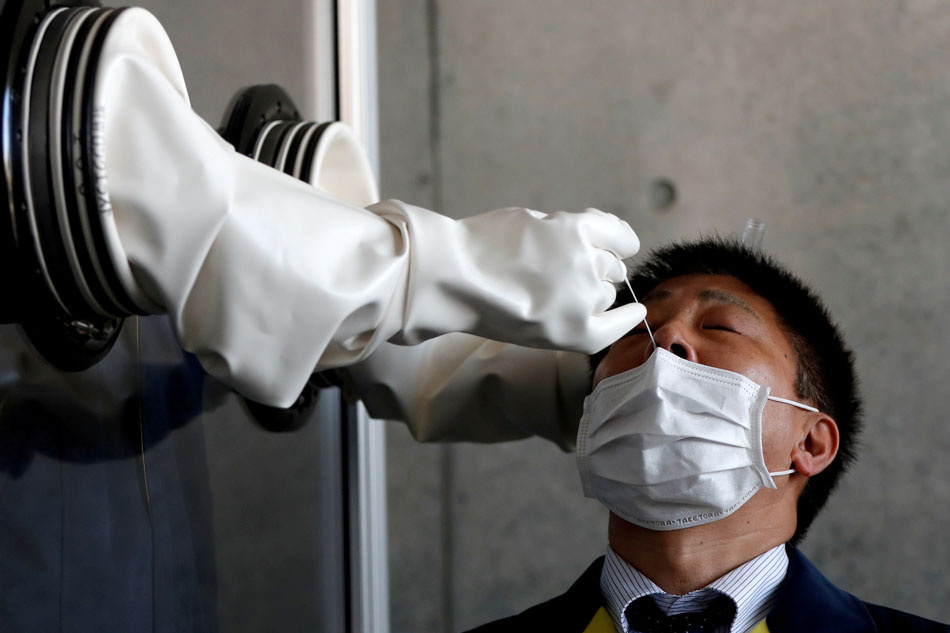Japan approves safer, easier PCR virus test using saliva | ABS-CBN

Welcome, Kapamilya! We use cookies to improve your browsing experience. Continuing to use this site means you agree to our use of cookies. Tell me more!
Japan approves safer, easier PCR virus test using saliva
Japan approves safer, easier PCR virus test using saliva
Kyodo News
Published Jun 02, 2020 02:11 PM PHT
TOKYO - Japan approved Tuesday a polymerase chain reaction coronavirus test using saliva, which is much safer and easier compared to the currently dominant method that collects mucus from back part of the nose.
TOKYO - Japan approved Tuesday a polymerase chain reaction coronavirus test using saliva, which is much safer and easier compared to the currently dominant method that collects mucus from back part of the nose.
The new testing method targets those within nine days of displaying symptoms and is covered by public health insurance. It is expected to pose less infection risk to medical staff as examinees only provide their saliva in a container at medical facilities.
The new testing method targets those within nine days of displaying symptoms and is covered by public health insurance. It is expected to pose less infection risk to medical staff as examinees only provide their saliva in a container at medical facilities.
The existing method uses a cotton swab to collect mucus from the nose, which has a high possibility of causing the patients to sneeze or cough in the process.
The existing method uses a cotton swab to collect mucus from the nose, which has a high possibility of causing the patients to sneeze or cough in the process.
As it leaves medical staff collecting the sample prone to potential infection, they need to wear goggles and gown. This has become a sticking point in expanding the scale of the PCR test.
As it leaves medical staff collecting the sample prone to potential infection, they need to wear goggles and gown. This has become a sticking point in expanding the scale of the PCR test.
ADVERTISEMENT
Japan has been widely criticized for not conducting enough virus tests compared to other countries.
Japan has been widely criticized for not conducting enough virus tests compared to other countries.
"Both the burden on patients and sample-collecting institutions that need to protect staff from infections will be alleviated significantly," health minister Katsunobu Kato told a press conference.
"Both the burden on patients and sample-collecting institutions that need to protect staff from infections will be alleviated significantly," health minister Katsunobu Kato told a press conference.
The test will be available at outpatients departments at designated hospitals and PCR testing centers. It will also be used for patients with coronavirus symptoms and staff at medical institutions to avoid in-hospital infection.
The test will be available at outpatients departments at designated hospitals and PCR testing centers. It will also be used for patients with coronavirus symptoms and staff at medical institutions to avoid in-hospital infection.
There has been a concern that the amount of virus could be smaller in saliva than in mucus from the nose, resulting in the lower accuracy of its test results.
There has been a concern that the amount of virus could be smaller in saliva than in mucus from the nose, resulting in the lower accuracy of its test results.
But a research on specimens from 88 coronavirus patients found that the results were all but identical between the two methods for those within nine days of showing symptoms.
But a research on specimens from 88 coronavirus patients found that the results were all but identical between the two methods for those within nine days of showing symptoms.
==Kyodo
ADVERTISEMENT
ADVERTISEMENT


